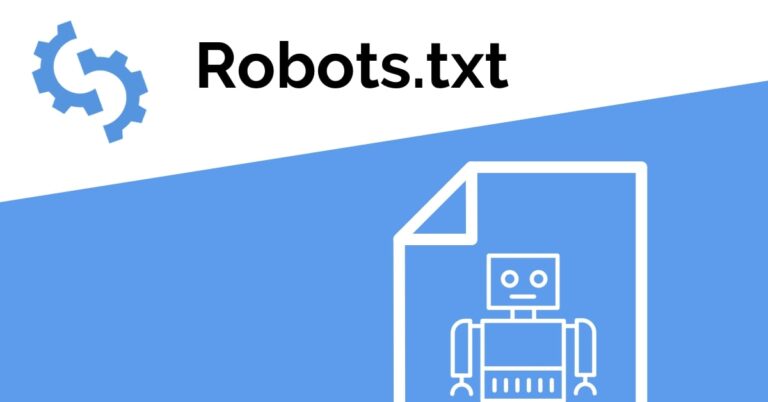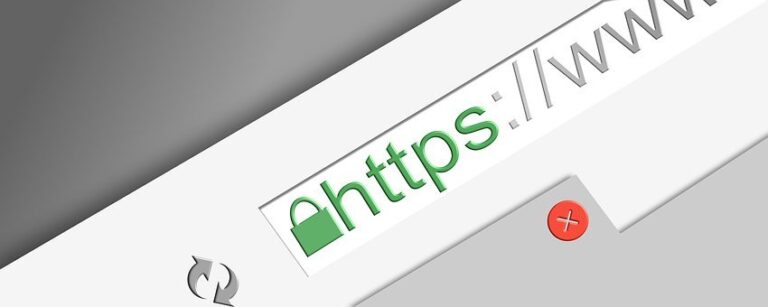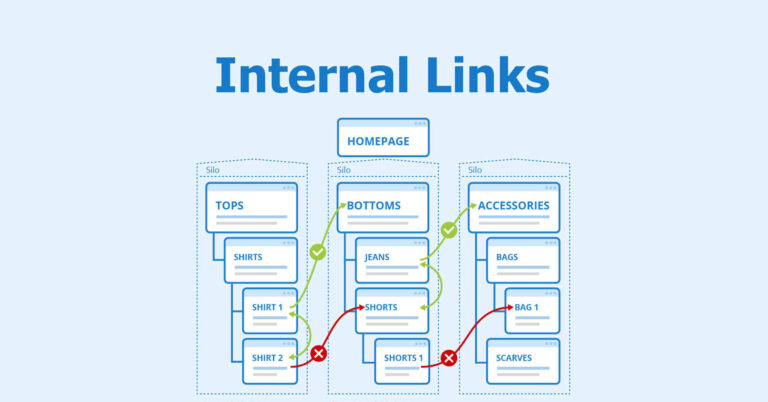What is Canonical URL
If you have a website, then you’ve probably heard the term “canonical URL.” But what is it, and why do you need to know about it? SEO is important for every website, and canonical URLs play a vital role in ensuring that your website is not penalized by search engines like Google and Bing.
Canonical URLs make sure that search engines don’t get confused when certain URLs point to the same webpage or piece of content. It also helps to inform you about the URLs with similar content.
In this blog post, we will define a canonical URL and explain why it’s important for your website. We’ll also discuss setting up canonical URLs on your website and providing some tips for using them correctly.
So, let’s get started.

What is meant by a canonical URL in Google?
The definition of canonical URL according to Google is:
“A canonical URL is the address of a web page or document that you’d like search engines to consider the “original” version. You can use canonical URLs to help prevent content from being duplicated on your site, which can hurt your site’s ranking in search results.”
In other words, using canonical URLs helps ensure that your website’s ranking isn’t harmed by duplicate content. When a search engine indexes your website, it looks at all the different pages and determines which pages are most important. If it finds multiple versions of the same page, it may not know which one is the most important and could rank them all equally – or worse, penalize your website for having duplicate content.
Now that we know about the canonical URL let’s learn about canonical content.
What is canonical content?
Canonical content is the original version of a web page or document. It’s typically referred to as “original” because other websites have not duplicated it. Therefore it doesn’t pose any problems for search engines to identify which page they should rank first in results pages (SERPs).
The concept behind canonical URLs – and their importance – comes from Google’s desire to ensure that only one version of each web page appears at any given time. That way, when you type something into your browser window like “coffee shop,” all of those listings will show up with identical information instead of being split across different pages due to duplicate content issues.
So what exactly happens if there isn’t just one URL listed on your search engine results pages?
If you’re lucky, your site may only suffer from a decreased click-through rate (CTR) as users bounce between multiple versions of the same page. However, suppose there are too many canonicalization issues on your website. In that case, Google may decide to slap a manual penalty on your pages, dramatically decreasing your site’s visibility and organic search traffic.
That’s why it’s so important to ensure that all of your web pages have unique URLs. Not just for SEO purposes but also user experience (UX). When users see the same information listed in multiple places on SERPs, they’re less likely to click through to any of them. And if they do click through, they’ll likely be disappointed when they realize they’ve landed on one of those pages instead of what they were expecting.
Why should I choose a canonical URL?
There are a few reasons why you might want to choose a canonical URL:
First, if your website has multiple URLs with the same content (due to redirects or parameter handling), using canonical tags can help prevent Google from penalizing your site for duplicate content.
Second, canonical tags can help improve the indexation and ranking of your web pages. For instance, if you have a website with multiple country-specific domains (e.g., shoestore.co.uk and shoestore.fr), using canonical tags can tell Google which version of the site it should crawl and index to improve SEO performance on those other domains.
Third, canonical tags can help prevent content cannibalization. As mentioned earlier, if a search engine finds multiple versions of a URL with identical content, it has no way of knowing which one to rank. In this scenario, likely, no content will rank. Canonical URLs help prevent this by telling the search engine which piece of SEO content to index and serve in the SERPs.
Fourth, canonical tags can help improve website usability by consolidating multiple URL versions into one. This is especially helpful if you have a website with multiple domain names or subdomains.
Finally, canonical URLs are important for optimizing your website for search engines.
How do I create a canonical URL?
Creating a canonical URL is easy – all you need is the right tool. You can either use a plugin like Yoast SEO for WordPress or create a custom header tag in your website’s code.
To set up a canonical URL, you’ll first need to find the page or document that you want to designate as the original. Once you’ve located it, add this line of code to its header:
Canonical:
Where “canonical” is the name of the page or document and “URL” is the address of that page or document. If you’re using Yoast SEO, simply open up your post or page and scroll down to the Advanced section. There, you’ll see an option for setting up a canonical URL.
Canonical URL is a fancy way of saying “most authoritative.” When you use this tag, your search engine will look at the page designated by its title or name. It will not necessarily be an exact match keyword phrase such as “coffee shop” and consider that version to be the original.
That means if someone searches for something like “best coffee shops in Seattle,” Google might decide not only which page ranks highest but also what domain name should appear first. It works even if it doesn’t have any specific keywords related specifically to those terms.
If there are multiple versions available online about some topic, then canonicalization makes sense. It helps keep things organized, so users don’t end up clicking around from one place to another just to figure out where they need to go next.
If there’s only one version of an article available (e.,g., on Wikipedia), then canonicalization doesn’t matter as much. It is because Google already knows what page should show up first based on its authority or ranking algorithm.
Is canonical URL necessary?
Canonical URLs are unnecessary, but they can help prevent duplicate content issues. It also ensures that users see the most authoritative version of a page. If you’re using WordPress, Yoast SEO makes it easy to set up canonical URLs for your posts and pages.
Alternatively, you can add a custom header tag to your website’s code. Whichever method you choose, make sure to designate the original page or document by adding the “canonical” tag with the corresponding URL. This tells Google which page is more authoritative when someone searches for specific keywords or phrases.
Canonical URLs aren’t necessary for every website, but they can help keep things organized and ensure that users see the most accurate information possible.
How do I create a canonical link in HTML?
A canonical link is an HTML attribute that you can add to links to tell search engines which URL version is the “real” one. This is important because if you have multiple versions of a URL (for example, with and without tracking parameters), search engines might not know which version to index and show in search results. Adding a canonical link to your website can help you fix these issues.
To add a canonical URL to a web page, insert this line into the head section of the page:
You may use a <link> tag in the head of your HTML to indicate when a page is a duplicate of another.
If you want https://domain.com/dresses/reed-dresses to be the canonical URL, even though other URLs may provide this information, you have to follow these steps:
1- First, mark all duplicate pages with a rel= “canonical” link tag.
After that, add an <link> element along with an attribute rel=”canonical” to the <head> section of duplicate pages. It will point to the canonical page.
For instance:
<link rel=”canonical” href=”https://domain.com/dresses/red-dresses” />
2- If the canonical URL has a mobile variant, then add a rel=”alternate” link to it. It will point out the mobile version of a certain page.
For instance:
<link rel=”alternate” media=”only screen and (max-width: 640px)” href=”http://m.domain.com/dresses/red-dresses”
3- You can add hreflang or any other redirects that are suitable according to the page.
How do I find my canonical URL?
You can find your canonical URL by looking at the source code of your web page. The canonical link tag will look something like this:
<link rel=”canonical” href=”https://shoestore.org” />
The tag is crucial because search engines crawl websites to look for information to determine how to rank pages and articles. If the search crawler encounters two URLs with identical content, it cannot determine which one should rank. It’s unable to choose which page to rank because both SEO content pieces cannibalize each other’s ranking potential. It is possible that in the end, no content will rank.
Do canonical URLs help SEO?
Canonical URLs do help with SEO, though the extent of their impact is debated. There are two main reasons why canonical URLs help:
First, they can prevent duplicate content issues. As mentioned above, if a search engine finds multiple versions of a URL with identical content, it has no way of knowing which one to rank. In this scenario, likely, no content will rank. Canonical URLs help prevent this by telling the search engine which piece of SEO content to index. Moreover, it will know what content will serve in the SERPs.
Second, canonical tags can tell search engines to handle duplicate content across multiple domains. For example: if you have a website with multiple country-specific domains (e.g., shoe store.co.uk, shoe store.fr, etc.), you can use canonical tags. This way, you can tell the search engine which version of the website it should crawl and index. This is beneficial because it prevents the search engine from penalizing your site for duplicate content. Also, it will only be indexing one version of your website.
While canonical tags don’t have a huge impact on SEO, they are still an important part of optimizing your content for the search engine crawlers.
Conclusion
Every website needs SEO, and using canonical URLs can assist search engines in better-informing users which URLs have identical or extremely comparable content. Understanding how to utilize canonical URLs is one of many important skills you need to optimize your site. Make sure your website includes canonicals for starters to avoid future cannibalization issues.
Sources & External Links
Pages that search results are linking to (excluding internal links):
- URL Inspection Tool – Search Console Help
- Block crawling of parameterized duplicate content – Search Console Help
- Apache – Redirect an Index File to Your Domain Without Looping
- SEO Best Practices for Canonical URLs + the Rel=Canonical Tag
- Canonical Link Element: presentation from SMX West | Google Search Central Blog | Google Developers
- 5 common mistakes with rel=canonical
www Vs. Non-www: Is It A Google Ranking Factor? - Search Engine Journal
March 11, 2022 - Search Engine Journalwww Vs. Non-www: Is It A Google Ranking Factor? Search Engine Journal...
When To Use Rel Canonical Or Noindex ...Or Both - Search Engine Journal
November 18, 2021 - Search Engine JournalWhen To Use Rel Canonical Or Noindex Or Both Search Engine Journal...





